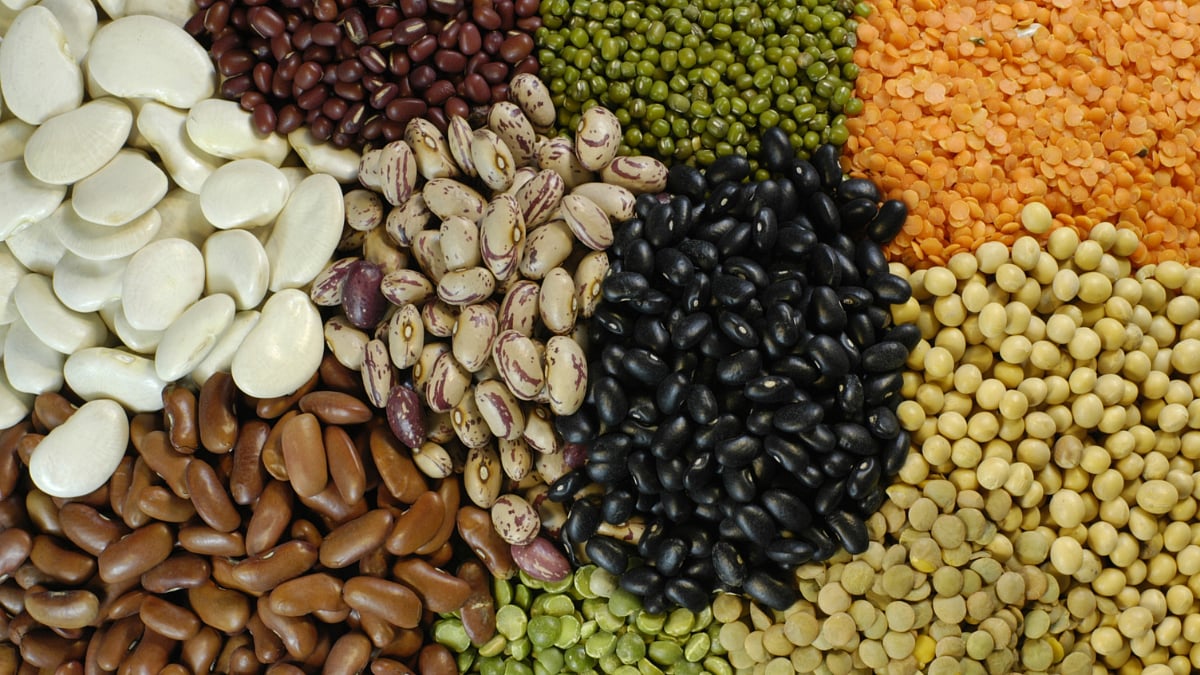World Pulses Day 2025: Know How Different Pulses Benefit Your Health
Celebrated on February 10, find out the nutritional value of pulses and its benefits.

Canva
Every February 10 is recognised the world over as World Pulses Day. It is celebrated to promote the importance of pulses in terms of nutrition, food security and environment. In India, a predominantly vegetarian country, pulses are a major source of nutrition.
The health benefits are numerous. Even Ayurveda gives importance to including different pulses in your diet. If prepared in a certain manner with certain spices and ingredients, pulses provide Ayurvedic benefits to your health.
Different pulses and their Ayurvedic benefits
Rajma or Kidney Beans: A major pulse in Indian cooking, rajma is a rich source of magnesium for bone and teeth health, zinc for skin care and antioxidants, controlling blood pressure, iron for energy and soluble fibre for weight loss. Choose Patanjali Unpolished Rajma (500 Gm) as it tastes better than the polished one and has nutrients.
Masoor Dal or Red Lentils: Both whole and splint masoor dal are used heavily in Indian cooking. It has fibre to help in digestion and avoid constipation, Vitamins A, C and E for good eyesight, proteins and less carbs for weight loss and antioxidants for skin care. The Patanjali Unpolished Malka Masoor Dal (500 Gm) is a healthier option along with the Patanjali Unpolished Black Masur (500 Gm).
Moong Dal: Rich in vitamins and antioxidants like fibre, manganese, magnesium, iron, phosphorous, copper, zinc, carbs, protein, and folate, it reduces heart troubles, heat stroke, lower cholesterol and blood pressure, digestion, weight loss and blood sugar. You can choose the Patanjali Unpolished Moong Dal Dhuli (500 Gm) and Patanjali Unpolished Moong Dal Chilka (500 Gm) for their properties.
ALSO READ
Urad Dal: The fibre in urad dal aids in digestion and diabetes, while the iron content helps in red blood cell creation. Its potassium works in favour of your heart. Calcium along with iron, potassium and other minerals helps bone health. It is also great for kidney health. Patanjali Unpolished Urad Chilka (500 Gm) and Patanjali Unpolished Urad Whole (500 Gm) have the benefits intact.
Toor or Arhar Dal: Also known as pigeon peas, toor dal has high protein for overall health. Its folic acid content benefits expecting mothers. Vitamin B helps metabolism for energy and skin care. Iron and potassium boost haemoglobin and manage blood pressure.
Black-eyed beans or Chawli or Lobia: These beans are big on Vitamin A, folate, fibre and manganese, apart from copper, potassium, calcium and Zinc. It helps in digestion, reducing blood pressure and cholesterol and skin and eye care.
Kala and Kabuli Chana: While Kala Chana is known for its fibre content, protein and minerals for handling weight troubles, digestion and heart, Kabuli Chana has fibre good for digestion, potassium and magnesium for the heart. It provides immunity, manages blood sugar, iron deficiency and good bones. Consuming Patanjali Kala Chana (500 Gm) helps get the fibre, protein, carbs and vitamins. Patanjali Unpolished Chhole (Kabuli Chana) (500 Gm) is highly nutritious and healthy.
This World Pulses Day celebrated on February 10, promise yourself to include pulses in your diet for a healthy life. Of course, Patanjali is at your service to provide the best quality pulses.
RECENT STORIES
-
-
-
-
-